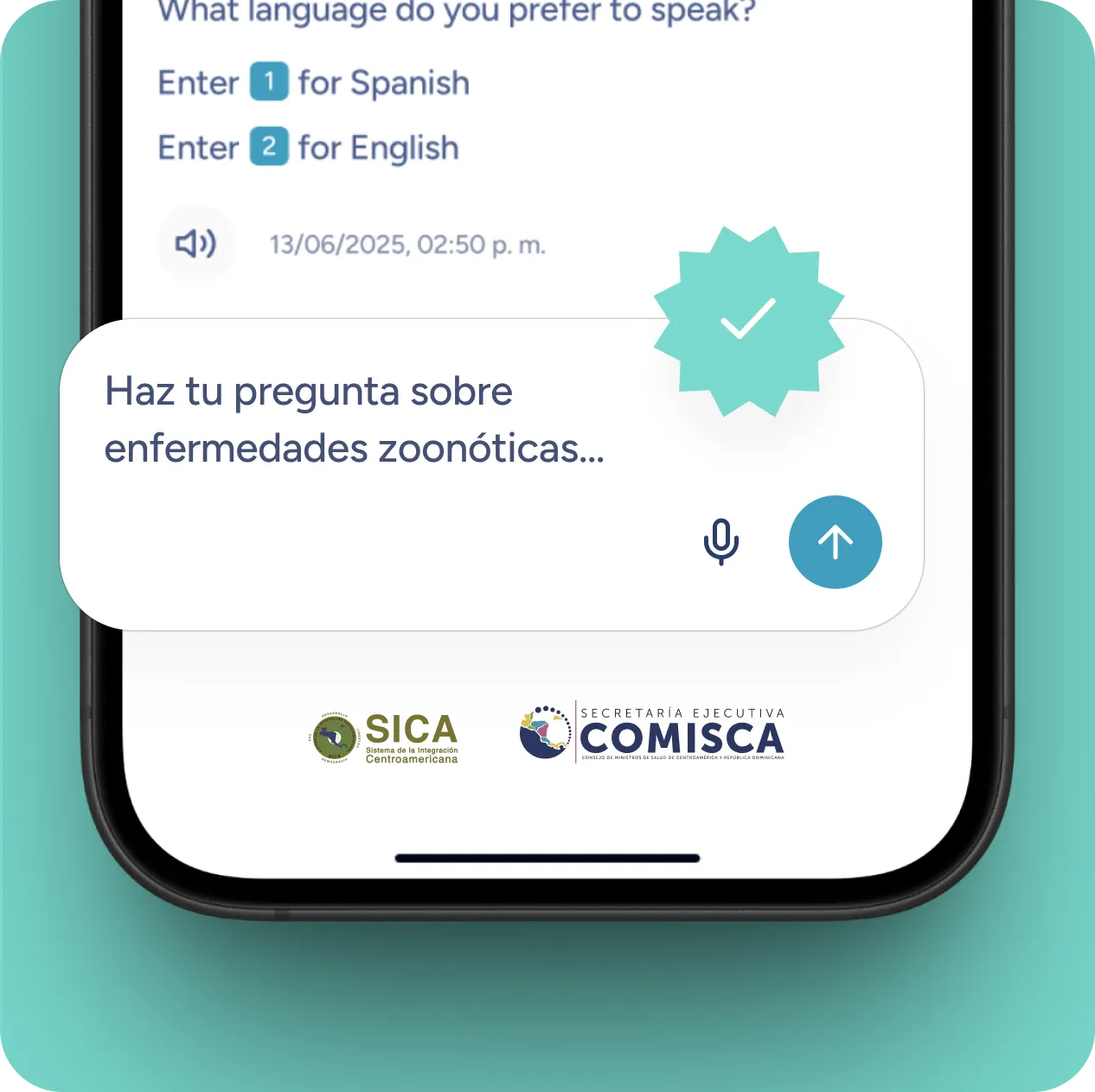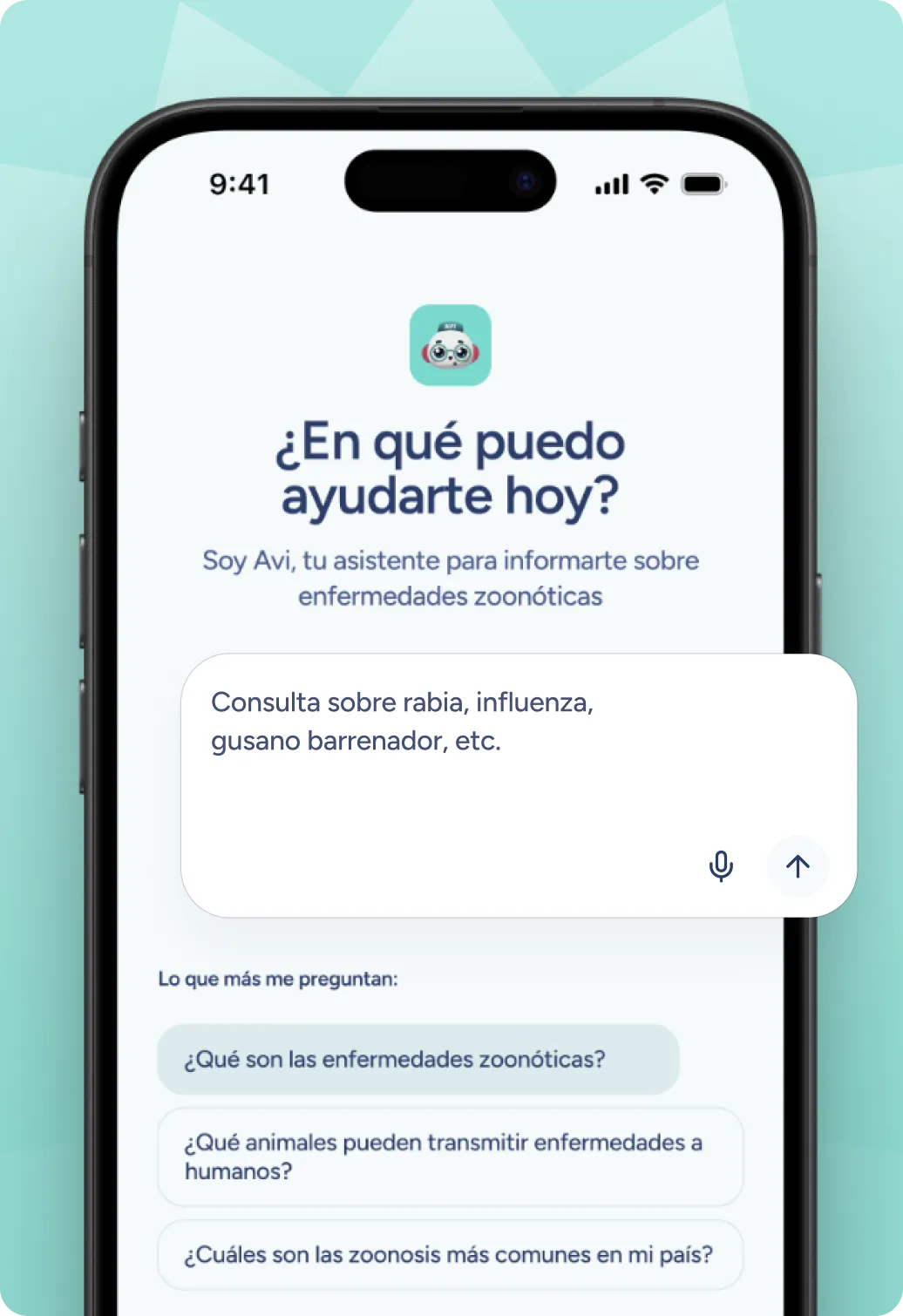AVI ONE HEALTH
One health for all
Alongside Avi, gather and report information on zoonotic diseases in the region.

Why trust Avi One Health?
Reliable information
Access accurate and up-to-date information on zoonotic diseases such as influenza, rabies, and screwworm, backed by expert public health sources.
Easy to use
Our chatbot offers an intuitive and friendly experience, facilitating access to resources and navigation through the platform.
Simplified Suspicion Report
Contribute to the early detection of the disease by reporting suspicious cases quickly and safely through our specialized chatbot.
Direct link with health institutions
Comprehensive information about the disease
Interactive support anytime, anywhere
How does it work?
Simple interaction
Avi offers an intuitive and easy-to-use user experience. Simply start a conversation on platforms like WhatsApp or Facebook and ask your questions about influenza, rabies, or the screwworm.
Complete information
Get detailed answers about the disease, including symptoms in animals and people, ways of transmission, precautions and safety measures to prevent its spread.
Access to regional resources
Use the bot as a channel to connect with regional health institutions. Get additional information about influenza, rabies, or the screwworm, or report suspected cases in animals or humans directly from the platform.
Report of suspected cases
In addition to providing information, Avi One Health allows you to report cases of the disease. If you observe suspicious symptoms in animals or people, you can report it to the relevant authorities through the bot for a quick and effective response.

Frequently asked questions
Find answers to your most common questions about influenza, rabies, screwworm, and our virtual assistant powered by Artificial Intelligence.

Ask Avi
Avi is here to answer all your questions about zoonotic diseases!
Your reliable and knowledgeable chatbot.


 English
English  Español
Español